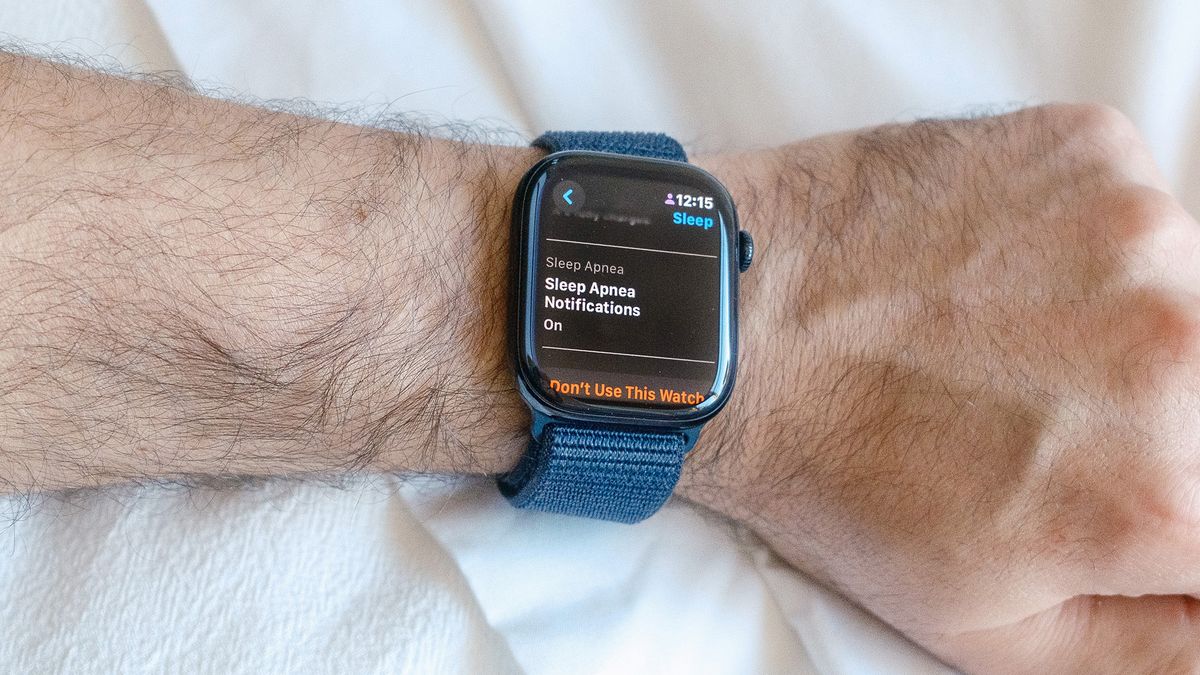In late 2023, Apple received a small blow to its lucrative Christmas sales period thanks to the medical device manufacturer Masimo. The firm successfully blocked U.S. sales of the Apple Watch Series 9 and Apple Watch Ultra 2, via an International Trade Commission (ITC) ruling that the devices infringed on its patent for pulse oximetry.
Between December 21 and December 27, only the Apple Watch SE — which lacks the feature — was available to buy from Apple stores. But the company quickly compensated, by removing blood oxygen measurement from its flagship smartwatches sold new — a feature that’s still MIA on new devices to this day.
On Friday, Apple got a small piece of revenge over Masimo, Bloomberg Law reports, with a federal jury in Delaware concluding that the firm had infringed on two of Apple’s patents in one of its smartwatches. But ultimately, it’s not much of a prize for a couple of reasons.
Firstly, the damages won’t make the world’s richest company much richer. A fee of just $250 (yes, just a single zero) was sought by Apple, the statutory minimum damages possible.
“We’re not here for the money,” Apple attorney John Desmarais is quoted as telling jurors in his closing statement, adding that the purpose of the action was to “stop copying our design”.
But while two design patents were indeed found to be infringed — one for the charger, and one health module in the watch itself — neither is part of Masimo’s current products, making an injunction of future sales essentially pointless, Bloomberg explains. “The decision all but removed its chances to block Masimo’s current products,” the piece reads.
Claiming that the jury ruled in its favor “on nearly all issues”, Masimo’s statement opines that the legal action was a bust for the iPhone maker. “Apple primarily sought an injunction against Masimo’s current products, and the jury’s verdict is a victory for Masimo on that issue,” the statement reads.
Apple, as you might imagine, seeks to paint things differently. “We thank the jury for their careful consideration in this case, finding Masimo willfully infringed Apple’s patented designs,” a statement shared with 9to5Mac reads. “Teams at Apple worked for years to develop the Apple Watch, a successful and innovative product that meaningfully impacts users’ lives.
“Masimo took shortcuts, launching a device that copies Apple Watch and infringes our intellectual property. We are glad the jury’s decision today will protect the innovations we advance on behalf of our customers.”
While both claiming victory in their own ways, the two statements aren’t actually contradictory. But whichever spin you choose to believe, this trial does not directly impact blood oxygen sensing on Apple’s wearables — a feature still absent from the recently released Apple Watch Series 10.
While we haven’t heard any updates recently, in February Apple CEO Tim Cook signalled that the company plans to appeal the ITC ruling, rather than settling and seeking a licencing agreement for the technology from Masimo.
“We’re focused on appeal,” a statement from Cook spotted by AppleInsider read. “There’s lots of reasons to buy the watch even without the blood oxygen sensor.”
While this plays out, the feature remains disabled on new Apple Watches, including the newly released Series 10. While there was concern this would block the anticipated addition of sleep apnea detection, the feature ultimately arrived on the new wearable using the device’s accelerometer rather than its blood oxygen sensor for monitoring.










